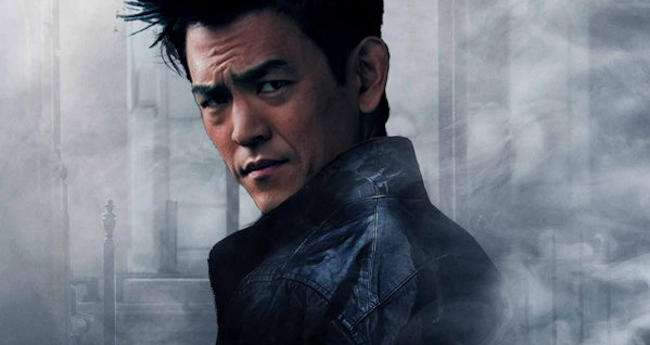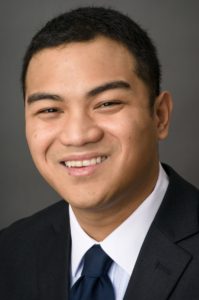
By Guest Contributor: Christopher M. Lapinig
Are you all about the #StarringJohnCho posters, the Photoshop phenomenon that reimagines posters for recent Hollywood blockbusters with actor John Cho in their leading-man roles? Then you should be equally as excited about supporting race-conscious affirmative action in college admissions, too.
To understand how John Cho relates to college admissions, let’s first take a closer look at why #StarringJohnCho matters.
#StarringJohnCho and its counterpart #StarringConstanceWu are reactions to the abysmal underrepresentation of Asian American actors in lead roles in both television and movies. #StarringJohnCho ponders why Asian actors continue to be shut out of lead roles in entertainment, even when “studies show that films with diverse casts result in higher box office numbers and higher returns on investments for film companies.” #StarringJohnCho challenges Hollywood to break out of tired templates and think more expansively about casting and storylines.
Of course, there have been some signs of progress — on the small screen, at least. For example, Fresh Off the Boat — recently renewed for a third season — became the first sitcom focused on an Asian American family to thrive past its first season. Critically acclaimed Crazy Ex-Girlfriend not only features an Asian American man as the protagonist’s primary love interest, but showcases a Filipino American family for the first time in network television history. And Aziz Ansari and Alan Yang’s Netflix hit Master of None—which, in one episode, poignantly depicts relationships between immigrant parents and their U.S.-born children— recently won a Peabody Award.
All of these recent breakthroughs resulted from intentional actions to depict characters and stories that have historically been shut out of television. These breakthroughs only happened because network executives intentionally took a chance on airing the first Asian American family sitcom on television in twenty years. They happened only because show creators actively chose to cast an Asian man as their romantic lead — in part because that was something they had never seen on television before. And they happened because writers decided to translate their own relationships with their immigrant parents into a script.
For studios, the lesson is clear — diversity pays off.
These breakthroughs don’t just benefit the Asian Americans working on and off camera; they benefit audiences, too. Not only do the characters and stories begin to look more like our country as whole, these changes in the industry make for better stories. As the New York Times recently wrote, “The less homogeneous TV is, the less boring it is.”
What Hollywood needs — and what #StarringJohnCho demands — is more affirmative action. For decades, race-conscious college admissions has been the Fresh Off the Boat — or even the Crazy Ex-Girlfriend — of higher education. Race-conscious college admissions acknowledges that many groups — women, minorities, LGBTQ individuals, and others — have historically been denied access to college. Affirmative action is a conscious effort — just as casting John Cho as James Bond would be — to include “characters” and “stories” that have long gone ignored in higher education.
And just as in entertainment, the benefits of this inclusion inure to the entire community. After all, the less homogeneous a college is, the less boring it is. More diversity, in other words, leads to richer conversations inside and outside the classroom.
That’s why the recent complaints filed by the so-called Asian American Coalition for Education (AACE) against Brown, Dartmouth, and Yale are misguided. The complaints overlook the myriad ways in which Asian Americans have benefited from affirmative action in education and elsewhere in American society.
Indeed, for example, Asian Americans have been direct beneficiaries of affirmative action at Yale. The rich Asian American community that Yale boasts today only exists because of the gains in representation that Asian American applicants received through affirmative action. And Yale still can do more to improve Asian American and Pacific Islander representation — certain ethnicities, including Southeast Asian, Native Hawaiian, and Pacific Islander ethnic groups (all conspicuously absent from AACE’s list of coalition members), remain woefully underrepresented on campus. As Yale, Dartmouth, and Brown have all recognized, strengthening student body diversity is in everyone’s interests. Just as all viewers benefit from diversity in Hollywood, all students — Asian American or otherwise — benefit from a diverse student body that enriches classroom discussions and campus life.
So your excitement about #StarringJohnCho likely reflects just how much Hollywood needs affirmative action. College campuses still do, too. And defending race-conscious college admissions deserves just as much of your enthusiasm as casting John Cho as Captain America.
Join Asian Americans Advancing Justice — Los Angeles in defending affirmative action by signing our open letter here.

Christopher M. Lapinig is a Skadden Fellow and Registered Legal Services Attorney at Asian Americans Advancing Justice – Los Angeles, the country’s largest legal services and civil rights organization serving Asian Americans, Native Hawaiians, and Pacific Islanders. Born and raised in Queens, New York, Chris graduated summa cum laude from Yale College with a B.A. in Ethnicity, Race & Migration and Linguistics and from Yale Law School with a J.D. Chris previously served as a law clerk to the Honorable Denny Chin of the U.S. Court of Appeals for the Second Circuit, a law clerk to the Honorable Lorna G. Schofield of the U.S. District Court for the Southern District of New York, and as a Fulbright Scholar in the Philippines.
Learn more about Reappropriate’s guest contributor program and submit your own writing here.
